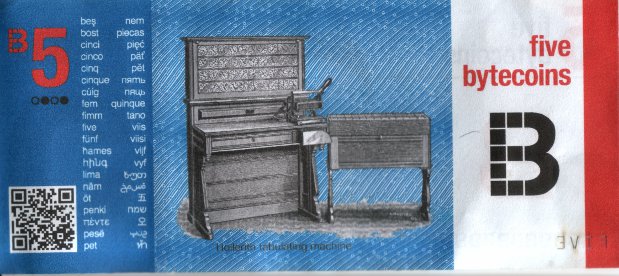July 5, 2011
A person at a party last weekend told me about the issue of territory. He explained that some people have a ratio of L-dopamine to dopamine in a certain part of their brain that causes them to be more territorial than others. Since this is not a learned trait, it is difficult to say that it should be unlearned. Two people I know have an unexpectedly strong response to violation of their physical property, even when that violation is not intended to be malicious. Most people I know lock their devices when not in use, but several people I know do not lock them at all. This should display the wide range of stances on this issue. However, the strong response against non-malicious violation of personal property is one that has prompted me to rethink the issue of personal property. If some people think that personal property should be sacred, does that mean that everyone must also so as to not offend these people? This opinion is the exact opposite of Richard Stallman's suggestion that people should set blank passwords. While Richard Stallman's ideas are novel, they are not so radical -- they are mirrored by kindergarten teachers who tell children to share their toys. So the question of trust must be raised. Do I trust others to use my computer? Certainly, as a different user, they cannot affect my system enough to cause me harm, so I benefit from them being able to use my computers. I wouldn't have a public website if I didn't think that sharing was important. Physical property is different than intellectual property though. I certainly don't make my money available to other people and I don't make my clothes available to others even though I have a huge stash of clothes I don't wear. Perhaps my take on personal property is naive that I should need to rethink my values of other people's property. Generally we must accept the rules of others when it comes to personal property because it is in some cases considered to be a serious violation.
Because of this discussion, I have thought a bit about others and I feel that I have learned a valuable lesson -- that others have different thoughts and ideas about property. I should be clear to ask someone before using their property even if my use is simply to type a nice message to them. Who knows, by asking them I could learn even more.
Read more »
July 2-5, 2011
While bitcoins are getting a lot of press, I thought I would pimp an even newer currency that has been circulating through the Seattle Hacker scene. Bytecoin [1], not to be confused with Bitbills [2] or Bitcoins [3] are a paper currency with no crypto security features. That means that in order to counterfeit a bytecoin, you simply need to copy it perfectly. On the other hand, bytecoins are cool, pretty, and worth the paper and ink they are printed on. Being real-world counts for something. I procured a sample and scanned it with my old scanner and made a 1450 dpi copy of the front and back of the 5 bytecoin to show the craftmanship of the bill. Of course, with a decent printer, you could use this image to counterfeit the currency as well. Time will tell whether bytecoins become worthy of counterfeiting, but I feel that the currency is worth something. The fact that I am posting hi-res scans means that the bytecoin is worth something to me. I am grateful to the author who was willing to let me post these scans.
Read more »For your eyes only.
Nov 16 a guitar high
Nov 16 b guitar low
Nov 16 c bass
Nov 16 d piano
Nov 12, 2010
If you haven't heard yet, Dan Kaminsky released Phreebird-1.0 yesterday at Blackhat Abu Dhabi. It is beta software that is designed to allow a DNS admin to setup DNSSEC in less than an hour. In my experience, setting up Phreebird on my system has taken less than an hour but has shown how awful the software is. It is not ready for prime time and it definitely has a lot of little work ahead of it. One might even question whether we should trust a security researcher to write good code. As a security researcher who puts great care into the software I write, I will most certainly say that security researchers are the perfect people to write code. We understand what needs to be done and "real" programmers can always make it better once we've got it working right. And when "real" programmers make mistakes, we can always crash their code.
The tarball is awful. Has no one ever taught Dan Kaminsky how to tar a package for worldwide distribution? Anyway, minor gripe.
Read more »




